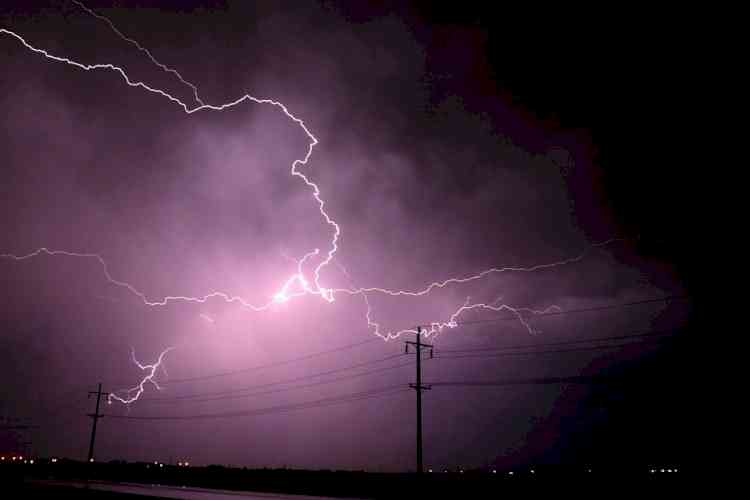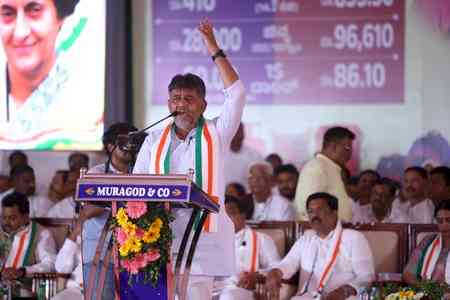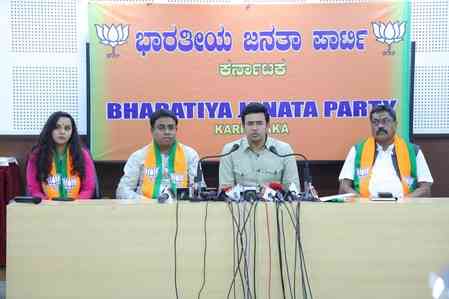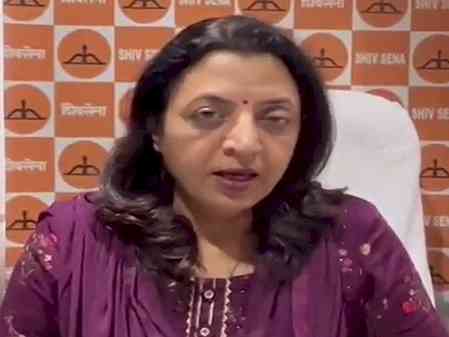14,295 died due to lightning between 2016-2020
Even when 14,295 persons died due to lightning strikes between 2016 and 2020, the government has not yet notified lightning as a natural calamity, the Lok Sabha was informed.

Nivedita Khandekar
New Delhi, March 19 (IANS) Even when 14,295 persons died due to lightning strikes between 2016 and 2020, the government has not yet notified lightning as a natural calamity, the Lok Sabha was informed.
"As many as 14,295 persons have died due to lightning strikes during the last five years. The number of people who died in 2016 was 3,315; it was 2,885 in 2017; more or less similar at 2,357 persons in 2018; increased slightly to 2,876 in 2019 and was 2,862 in 2020," the Lok Sabha was informed in response to a question by Kanimozhi Karunanidhi.
In 2020, Bihar with 436 deaths topped the list of states and UTs followed by 429 deaths in Madhya Pradesh; 336 deaths in Jharkhand; 304 in Uttar Pradesh; 275 Odisha and 246 Chhattisgarh while the number of people who died due to lightning in 2019 were comparable, with Bihar (400), Madhya Pradesh (400), Jharkhand (334), Uttar Pradesh (321) Odisha (271) and Chhattisgarh (212), the Lok Sabha was told on March 16.
Kanimozhi Karunanidhi had also asked the reason for the government to not notify lightning as a natural calamity despite the increase in deaths and damage caused by it.
"Presently the notified list of disasters eligible for National Disaster Response Fund (NDRF)/State Disaster Response Fund (SDRF) assistance includes 12 disasters namely cyclone, drought, earthquake, fire, flood, tsunami, hailstorm, landslide, avalanche, cloud burst, pest attack and frost & cold wave," Minister of State (Independent Charge) for Ministry of Earth Sciences (MoES), Jitendra Singh had replied.
"The issue of inclusion of more calamities in the existing notified list of calamities, was considered by the 15th Finance Commission. The Commission in para 8.143 of its report had observed that the list of notified disasters eligible for funding from State Disaster Response Mitigation Fund (SDRMF) and National Disaster Response Mitigation Fund (NDRMF) covers the needs of the state to large extent and thus did not find much merit in the request to expand its scope," Singh said.
However, a state government can use up to 10 per cent of the annual fund allocation of the SDRF, subject to fulfilment of certain prescribed conditions and norms, for providing immediate relief to the victims of natural disasters that they consider to be 'disasters' within the local context in the state and which are not included in the centrally notified list of natural disasters, the Lok Sabha was informed.


 IANS
IANS 










